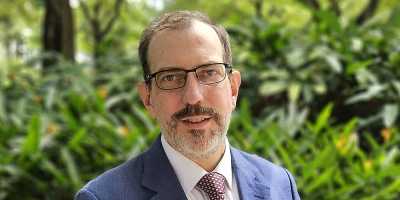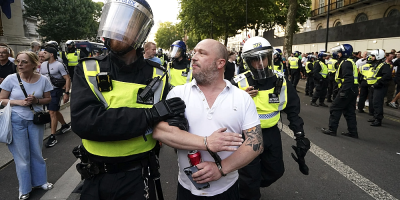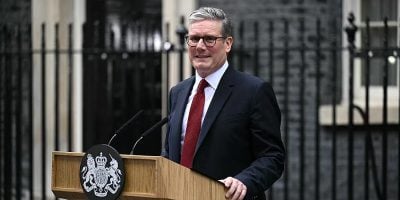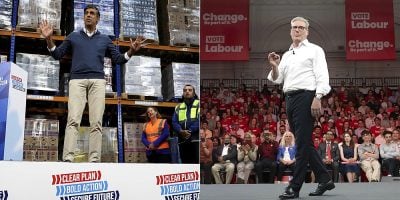LONDON: British Prime Minister Boris Johnson formally tenders his resignation to Queen Elizabeth II on Tuesday, handing over power to Liz Truss after his momentous tenure dominated by Brexit and Covid was cut short by scandal.
Johnson, who was forced to quit after losing the support of dozens of his ministers, bids farewell from Downing Street before jetting to northeast Scotland to see the 96-year-old monarch.
Normally the handover of power is a swift affair, with the outgoing and incoming leaders making a short trip to Buckingham Palace in central London.
But both Johnson and Truss face a 1,600-kilometer round trip to the head of state’s remote Balmoral retreat in the Scottish Highlands.
The queen opted not to return from her annual summer break for the brief ceremonial audience, after persistent health issues that have affected her ability to walk and stand.
Johnson is due to arrive at 11:20 am (1020 GMT) at Balmoral, with Truss expected at 12:10 pm, royal officials said.
At the meeting, which should last about 30 minutes, she will ask Truss, as the leader of the largest party in parliament, to form a government.
Truss, 47, was announced winner of an internal vote of Conservative party members on Monday, after a grueling contest that began in July.
All eyes will be on her return to the British capital and first address as prime minister, which is expected to take place outside 10 Downing Street on Tuesday afternoon — weather permitting.
Heavy rain and storms are forecast, mirroring the gloomy economic situation that she and her new senior ministers will have to tackle from day one.
The appointments are due to be finalized before she hosts her first cabinet meeting and faces questions in parliament on Wednesday.
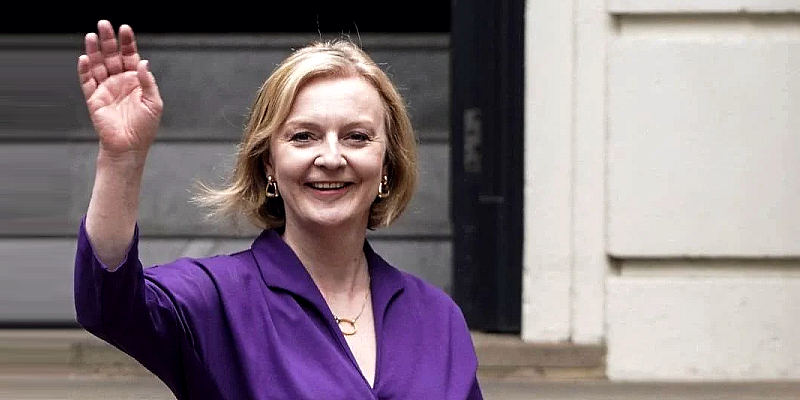
To-do list
Business secretary Kwasi Kwarteng is expected to become finance minister, with attorney general Suella Braverman moved to the tricky brief of home secretary, and James Cleverly to foreign affairs.
If confirmed, it would mean no white men in any of Britain’s four main ministerial posts for the first time ever.
Truss faces a daunting to-do list, with the UK in the grip of its worst economic crisis in decades.
Inflation is rampant and running at 40-year highs of 10.1 percent, with predictions of worse to come and recession as winter bites.
Households face an 80 percent increase in gas and electricity bills from October, while businesses warn they could go to the wall from even bigger hikes.
Truss, who touts herself as a free-market liberal, has promised tax cuts to stimulate growth, despite warnings that greater borrowing could make inflation worse.
The contrast to her beaten leadership rival Rishi Sunak’s more cautious approach has opened another rift in the Conservative party that was already divided by Johnson’s departure.
Recent opinion polls suggest a sizable chunk of the British public have no faith in her ability to tackle the cost-of-living crisis.
A new poll by YouGov said only 14 percent expect Truss to do a better job than Johnson.
Johnson, 58, remains popular among grassroots Tories as a charismatic election winner, who took the country out of the European Union.
Despite repeated accusations of corruption and cronyism during his tenure, and an unprecedented police fine for breaking his own lockdown rules, Johnson is said to be smarting at having to leave.
Speculation has swirled that he could bide his time for a comeback, particularly if Truss struggles to overcome the country’s many problems.
But on Monday he gave his full-throated backing to his successor and urged the party: “Now is the time for all Conservatives to get behind her 100 percent.”
In her acceptance speech on Monday, Truss ruled out seeking her own mandate from the public at an early general election, vowing victory in 2024.
ADVERTISEMENT
ADVERTISEMENT






